
Cornelis de Graeff, often named Polsbroek or de heer van (lord) Polsbroek during his lifetime was an influential regent and burgomaster (mayor) of Amsterdam, statesman and diplomat of Holland and the Republic of the United Netherlands at the height of the Dutch Golden Age.
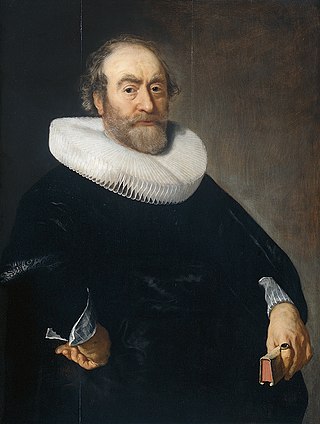
Andries Bicker, lord of Engelenburg was a powerful Amsterdam burgomaster and Dutch politician and diplomat during the Dutch Golden Age. He was a prominent member of the Bicker family of Amsterdam regents who, together with the related De Graeff family, governed the city of Amsterdam and with it the province of Holland for about half a century and, at that time, effectively the Republic of the Netherlands when it was at the height of its power.

De Graeff is an old Dutch patrician and noble family,
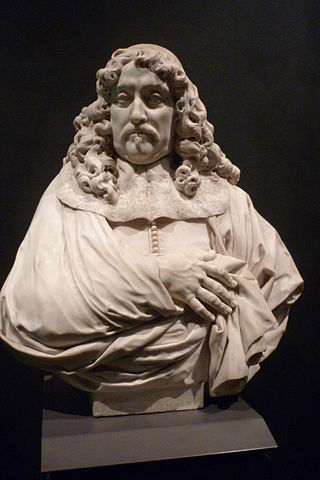
Andries de Graeff was a regent and burgomaster (mayor) of Amsterdam and leading Dutch statesman during the Golden Age.

Dirck Jansz Graeff, also Diederik Jansz Graeff, Lord of the manors Valckeveen and Vredenhof, was a patrician, wholesaler, shipowner, politician and large landowner. He became an important figure of the Protestant Reformation, member of the Reformed Church, supporter of the Geuzen and the Protestant-minded community of wholesale merchants, and a confidant of William I of Orange. Graeff was the founder of a regent dynasty of the Dutch Golden Age and the short time of the First Stadtholderless Period that retained power and influence for centuries and produced a number of ministers. He was the first Burgomaster of Amsterdam from the De Graeff family.

Pieter de Graeff was a Dutch aristocrat of the Dutch Golden Age and one of the most influential pro-state, republican Amsterdam Regents during the late 1660s and the early 1670s before the Rampjaar 1672. As president-bewindhebber of the Dutch East India Company, he was one of the most important representatives and leaders of the same after the Rampjaar.

Jacob Dircksz de Graeff, free lord of Zuid-Polsbroek was an illustrious member of the Dutch patrician De Graeff family. He belonged to States Faction and was an influential Amsterdam regent and burgomaster (mayor) of the Dutch Golden Age.

KnightCornelis de Graeff was a Dutch nobleman and a water board member of the Zijpe and Haze Polder.

Jacob de Graeff was a member of the De Graeff-family from the Dutch Golden Age. He was an Amsterdam regent and held the title as 20th Free Lord of Ilpendam and Purmerland.
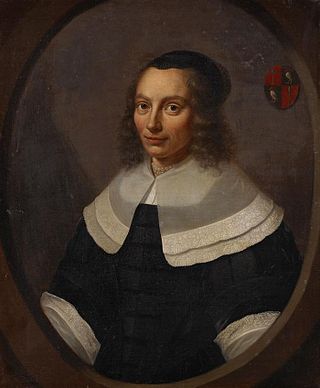
Agneta de Graeff van Polsbroek, was a patrician woman from the Dutch Golden Age. She became known as the mother-in-law of Johan de Witt.

Bicker is a very old Dutch patrician family. The family has played an important role during the Dutch Golden Age. They led the Dutch States Party and were at the centre of Amsterdam oligarchy from the beginning of the 17th century until the early 1650s, influencing the government of Holland and the Republic of the United Netherlands. Their wealth was based on commercial transactions, and in their political commitment they mostly opposed the House of Orange.

Cornelis Bicker van Swieten, heer (lord) van Swieten, was an Amsterdam regent of the Dutch Republic during the Golden Age and a governor of the Dutch West India Company. He was also a sugar merchant, hoogheemraad of the Hoogheemraadschap van Rijnland and a counsellor of the States of Holland and West Friesland for Amsterdam at The Hague. He belonged to the Dutch States Party and was in opposition to the House of Orange.
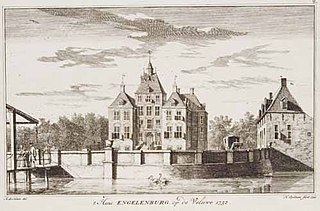
Jacob Bicker was a Dutch patrician and merchant. Between 1643 and 1647 he was lord of Engelenburg and a director of the Oostzeevaart, handling Dutch trade with the Baltic Sea.

Jan Pietersz Graeff was an Amsterdam regent and cloth wholesaler from the 16th century.
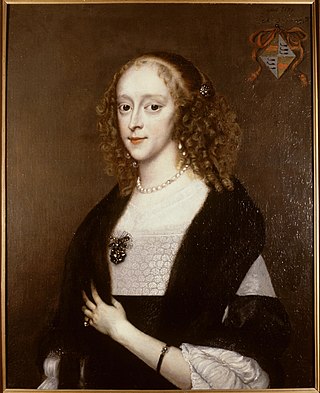
Wendela Bicker was the wife of Johan de Witt. She was one of the richest young female commoners of her time and she married one of the most influential republican politicians in the Netherlands. She was in the public eye during her lifetime and entered history books thereafter. This is facilitated by the letters and the housekeeping books she left behind. The narrative about her life reflects how the role of women in the Netherlands in the 17th century was and is understood.

Cornelis Andriesz Boelens Loen was a Dutch statesman and Councilor from the time of the Dutch Revolt.

Andries Boelens, also: Boelenz, Boelensz., Andries Boel Dircksz. or Andries Boelen Dircksz, was an alderman and mayor of Amsterdam. In the period from 1496 to 1517 he was mayor fifteen times. The term of his office is the first to be characterized as a period with a rather closed government elite. Because of this he was one of the founders of the Amsterdam oligarchy. Boelens is considered the progenitor of the Amsterdam regents of the Dutch Golden Age such as the De Graeff and Bicker families who largely claimed descent and their political legality from him.

Jacoba Bicker was from the Bicker family, which was one of the leading pro-state families in the Dutch Golden Age.

Dirk de Graeff was a Dutch 17th-century regent who belonged to the States Party.

























